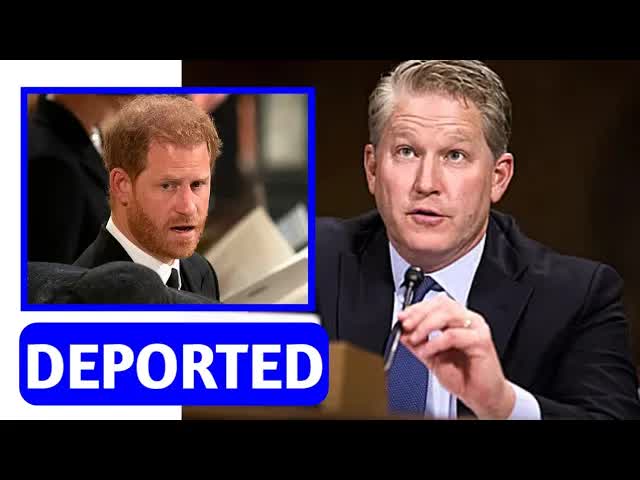A legal saga unfolds as Prince Harry’s U.S. visa application papers take center stage, now in the hands of a federal judge tasked with deciding their fate in terms of public disclosure.
This latest development sheds new light on the ongoing legal tussle surrounding the Duke of Sussex’s immigration status.
The Conservative Heritage Foundation has stepped forward, pushing for the release of these documents to delve into whether Prince Harry was forthright about his history of drug use in his visa application.
Residing in Montecito, California since March 2020 alongside his wife Meghan and their children, Prince Harry made candid revelations in his memoir “Spare,” openly admitting to past cocaine, cannabis, and psychedelic mushroom use.
These revelations have cast doubt on the accuracy of his statements provided during his U.S. visa application process.
While previous drug use does not automatically disqualify an individual from obtaining a visa, the Heritage Foundation’s Freedom of Information request aims to ensure that Prince Harry received no preferential treatment.
Initially, the Department of Homeland Security (DHS) declined to release Prince Harry’s visa application, citing privacy exemptions concerning individuals’ visa and immigration status.
However, Judge Carl Nichols deemed the DHS’s arguments insufficiently detailed, prompting an order for additional justification to maintain the confidentiality of the documents.
Subsequently, the DHS complied by submitting declarations for private review through an encrypted link.
Niall Gardner, leading the charge for the Heritage Foundation, underscores the importance of transparency and equal treatment under the law.
He raises concerns about potential special treatment afforded to Prince Harry due to his public admission of extensive drug use.
Gardner questions whether the DHS thoroughly vetted the Prince’s application for accuracy and honesty, emphasizing the need for fairness and accountability in the immigration process.
During court proceedings, DHS lawyers argued that claims made in Prince Harry’s memoir should not be taken as absolute truth, suggesting authors sometimes embellish stories for commercial gain.
Conversely, the Heritage Foundation presented a transcript of Prince Harry’s Good Morning America interview, where he discussed the prospect of pursuing U.S. citizenship.
This interview is seen as bolstering their case for the release of his immigration records.
Following the court’s directive, the DHS sought a two-week extension to meet the submission deadline, citing the complexity of searching for and reviewing the records.
This delay underscores the significance of the case, with multiple government agencies likely to scrutinize the documents before they reach the judge’s desk.
The potential unveiling of Prince Harry’s visa application could have widespread ramifications, shedding light on his entry documents, status, and any immigration benefits sought.
The ongoing legal battle surrounding Prince Harry’s U.S. visa application continues to captivate public interest.
While initial privacy claims were made by the DHS, the court’s stance leans towards increased transparency.
The forthcoming review of these documents will provide valuable insights into Prince Harry’s immigration journey, emphasizing the principles of integrity, fairness, and equitable treatment within the immigration system.
The outcome of this case is poised to shape public discourse on immigration policies and the treatment of high-profile figures moving forward.
